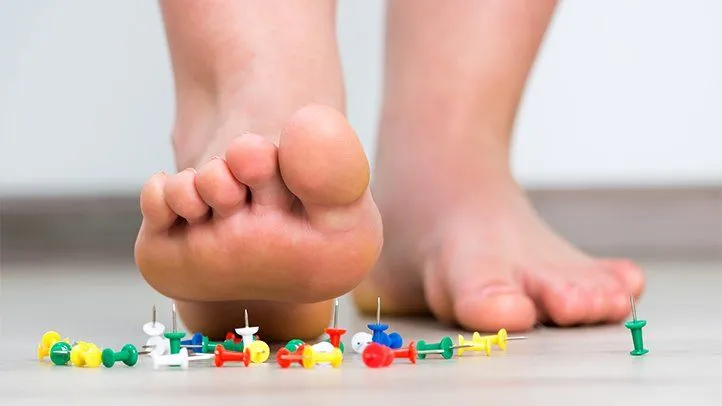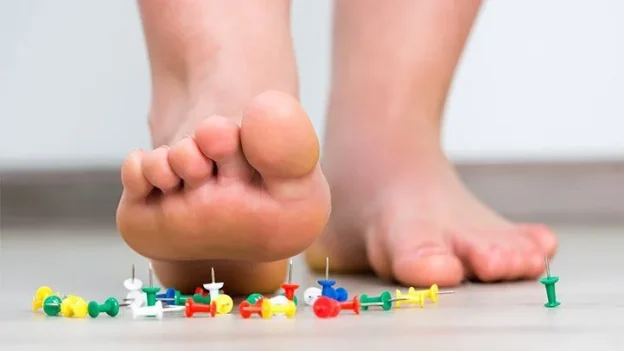Introduction
Tingling in the hands and feet is a common symptom that can be caused by a variety of conditions. In most cases, tingling in the extremities is not a cause for concern. However, there are some systemic diseases that can be associated with this symptom, including diabetic neuropathy. It is important to be aware of the potential causes of tingling in the extremities and to seek medical attention if the symptom is persistent or accompanied by other concerning symptoms. Looking for the best tingling treatment in Guntur or Andhra Pradesh, look no further than Dr Raos hospital, the best Doctor for tingling is Dr Rao, 📲9010056444
Causes of Tingling in hands and feet
There are many potential causes of tingling in the hands and feet. In most cases, the symptom is benign and will resolve on its own. However, there are some cases where tingling can be a sign of a more serious condition. Potential causes of tingling in the extremities include:
-Compression of nerves: This can occur due to prolonged pressure on a nerve, such as when sitting with your legs crossed for an extended period of time.
-Dehydration: Dehydration can cause the body to lose electrolytes, which can lead to tingling in the extremities.
-Vitamin deficiencies: Certain vitamin deficiencies, such as vitamin B12 deficiency, can cause tingling in the extremities.
-Diabetic neuropathy: Diabetic neuropathy is a type of nerve damage that can occur in people with diabetes. It can cause tingling, pain, and numbness in the extremities.
-Multiple sclerosis: Multiple sclerosis is a chronic autoimmune disease that can damage the nerves and cause tingling in the extremities.
Risk Factors for Tingling in Hands and Feet
There are some factors that can increase your risk of developing tingling in the hands and feet. These risk factors include:
-Age: Tingling in the extremities is more common as we age.
-Diabetes: People with diabetes are at increased risk for developing diabetic neuropathy, which can cause tingling in the extremities.
-Autoimmune diseases: People with autoimmune diseases, such as multiple sclerosis, are at increased risk for developing tingling in the extremities.
-Vitamin deficiencies: People who have vitamin deficiencies, such as vitamin B12 deficiency, are at increased risk for developing tingling in the extremities.
Systemic Diseases Associated with Tingling in Hands and Feet
There are some systemic diseases that can be associated with tingling in the hands and feet. These diseases include:
-Diabetic neuropathy: Diabetic neuropathy is a type of nerve damage that can occur in people with diabetes. It can cause tingling, pain, and numbness in the extremities.
-Multiple sclerosis: Multiple sclerosis is a chronic autoimmune disease that can damage the nerves and cause tingling in the extremities.
-Vitamin B12 deficiency: Vitamin B12 deficiency can cause tingling in the extremities.
Diabetic Neuropathy
Diabetic neuropathy is a type of nerve damage that can occur in people with diabetes. It can cause tingling, pain, and numbness in the extremities. Diabetic neuropathy is caused by high blood sugar levels damaging the nerves over time. The symptoms of diabetic neuropathy can range from mild to severe and can include:
-Tingling or numbness in the hands and feet
-Pain or cramping in the legs and feet
-Weakness in the legs and feet
-Loss of balance and coordination
-Difficulty walking
-Impaired digestion
-Urinary problems
If you have diabetes, it is important to control your blood sugar levels to help prevent diabetic neuropathy. Treatment for diabetic neuropathy focuses on managing the symptoms and includes medications, physical therapy, and lifestyle changes.
Diagnosis of Tingling in Hands and Feet
Tingling in the hands and feet is usually diagnosed based on a medical history and physical examination. Your doctor will ask about your symptoms and any potential risk factors. They will also perform a physical examination to look for signs of nerve damage or other conditions that could be causing your symptoms. In some cases, additional testing may be needed to confirm the diagnosis or rule out other potential causes. These tests may include:
-Blood tests: Blood tests can help to rule out other conditions that could be causing your symptoms.
-Nerve conduction studies: Nerve conduction studies measure the electrical activity of your nerves and can help to diagnose nerve damage.
-Imaging tests: Imaging tests, such as MRI or CT scan, may be ordered to rule out other conditions that could be causing your symptoms.
Treatment of Tingling in Hands and Feet
Treatment for tingling in the hands and feet depends on the underlying cause. In most cases, the symptom will resolve on its own with no treatment necessary. However, there are some cases where treatment may be needed to manage the symptoms or treat the underlying condition. Treatment options for tingling in the extremities include:
-Rest: If your symptoms are caused by compression of a nerve, rest may be all that is needed to relieve the symptoms.
-Ice: Applying ice to the affected area can help to reduce inflammation and pain.
-Heat: Applying heat to the affected area can help to relax the muscles and relieve pain.
-Exercise: Exercise can help to improve circulation and reduce symptoms of nerve damage.
-Physical therapy: Physical therapy can help to improve range of motion and reduce pain.
-Medications: Medications, such as pain relievers, anti-inflammatories, and antidepressants, can be used to manage pain and other symptoms.
-Vitamins: Taking vitamins, such as vitamin B12, can help to treat vitamin deficiencies that may be causing your symptoms.
Prevention of Tingling in Hands and Feet
There are some measures that you can take to help prevent tingling in the hands and feet. These measures include:
-Maintaining good posture: Maintaining good posture can help to prevent compression of nerves.
-Staying hydrated: Staying hydrated can help to prevent dehydration and electrolyte imbalances.
-Eating a healthy diet: Eating a healthy diet can help to prevent vitamin deficiencies.
-Exercising regularly: Exercising regularly can help to improve circulation and prevent nerve damage.
Conclusion
If you experience tingling in your hands and feet, it could be a sign of a serious health condition. If you have other symptoms, such as pain, numbness, or weakness, you should see a doctor right away. Tingling can be a symptom of diabetes, nerve damage, or other problems. Don’t ignore it—get checked out by a doctor to be safe. Looking for the best tingling treatment in Guntur or Andhra Pradesh, look no further than Dr Raos hospital, the best Doctor for tingling is Dr Rao, 📲9010056444.



